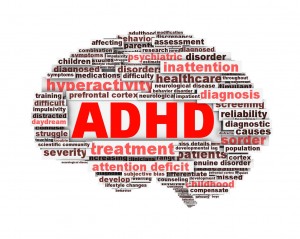Looking for a summer camp or summer program for your child? Here is a list of several summer options for children, teens and young adults with ADHD.
ADHD Summer Camps and Programs
Achievement Center
ADHD Summer Treatment Program for kids age 6 to 12.
Website: achievementctr.org
Contact: Mary McIntosh
Phone: 814-459-2755
Locations: Erie and Edinboro, Pennsylvania
Alternative Community Resource Program
Summer program for children and teens age 5 to 16 with ADHD.
Website: acrpkids.org
Contact: Frank Janakovik
Phone: 888-308-6783
Location: Johnstown, Pennsylvania
Brewster Academy
With academics, technology, adventure, arts, and leadership all rolled into one program, the Summer Session at Brewster Academy is both a school and an adventure. It’s setting on the shores of Lake Winnipesaukee offers an ideal environment for this small, intensive camp/school open to students ages 12 to 18.
Website: brewsteracademy.org
Email: summer@brewsteracademy.org
Phone: 603-569-7155
Location: Wolfeboro, New Hampshire
Camp Buckskin
Camp Buckskin is an overnight summer camp that specializes in serving children ages 6 to 18 who are experiencing social skill and academic difficulties. The majority of campers have a primary diagnosis of ADHD, learning disabilities, or Asperger’s while others may have a secondary or related diagnosis.
In addition, a significant number of campers are adopted.
Website: campbuckskin.com
Email: info@campbuckskin.com
Phone: 763-208-4805
Location: Ely, Minnesota
Camp Discovery
An outdoor day camp for children ages 3 to 10 with mild to moderate special needs which vary in range from ADHD, autism, Asperger’s, developmental delays, etc.
Website: campdiscoveryla.org
Email: dawn@campdiscoveryla.org
Phone: 818-501-5522
Location: Encino, California
Camp Excel
A specialized program for children with ADHD or other social skills challenges. Camp Excel is a comprehensive program that includes academics to promote growth and avoid regression over the summer, therapeutic activities to assist in making and keeping friends, sports to develop skills and build self-esteem and recreational activities for fun. The summer program serves children ages 5 to 17. Camp Excel recognizes the importance of family involvement and offers weekly Parent Groups to provide parenting information and support. Siblings groups are also available and allow these children a safe place to express feelings regarding their special needs sibling.
Website: campexcel.com
Email: info@CampExcel.com
Phone: 732-281-0275
Location: Monmouth County and Bergen County in New Jersey
Camp Huntington
Camp Huntington is a co-ed, residential program for children and young adults age 6 to 21 years with special learning and developmental needs. They serve campers with learning disabilities, ADHD, autism, Asperger’s, and other special needs.
Website: camphuntington.com
Phone: 866-514-5281
Location: High Falls, New York
Camp Northwood
Camp Northwood specializes in working with non-aggressive children ranging in age from 8 to 18 diagnosed with Asperger’s, high-functioning autism, ADHD, language processing weaknesses and other forms of minimal learning issues. All of the campers experience delayed social development, weak executive functioning, and poor organizational skills.
Website: nwood.com
Email: northwoodprograms@hotmail.com
Phone: 315-831-3621
Location: Remsen, New York
Camp Nuhop
Camp Nuhop is a residential summer camp for children age 6 to 18 with learning disabilities, ADHD, and behavior disorders.
Website: campnuhop.org
Email: campnuhop@zoominternet.net
Phone: 419-289-2227
Location: Perrysville, Ohio
Camp Ramapo
Camp Ramapo is designed for children ages 4 to 16 who are having difficulty building and maintaining healthy relationships with peers and adults. Campers are referred by parents, teachers, and mental health professionals.
Website: ramapoforchildren.org
Email: office@ramapoforchildren.org
Phone: 845-876-8423
Location: Rhinebeck, New York
Camp Sequoia
Camp Sequoia is an overnight summer camp for children ages 8-17 who need developing their social skills.
Website: camp-sequoia.com
Email: office@camp-sequoia.com
Phone: 610-771-0111
Location: Pottstown, Pennsylvania
Camp Star – University of Illinois at Chicago/JCYS North Shore Day Camp
Serves children ranging in age from 6 to 12. Many campers have a diagnosis of ADHD. Others have a diagnosis of oppositional defiant disorder, high-functioning autism or Asperger’s. Some may not have a formal diagnosis.
Website: jcys.org
Email: campstar@jcys.org
Phone: 847-814-STAR (7827)
Location: Chicago, Illinois
Celebrate ADHD – Friendship Camp
Friendship Camp summer day program offers children with ADHD a small and personalized setting to enjoy fun activities and build confidence and social skills. For children age 5 through 16. The camp also provides parent support and education.
Website: celebrate-adhd.com
Contact: Kirk Martin
Email: kirk@celebratecalm.com
Location: Ashburn, Virginia
Charis Hills
Charis Hills is a Christian summer camp for kids and young adults age 7 to 25 with learning and social difficulties such as ADHD and Asperger’s disorder.
Website: charishills.org
Email: info@charishills.org
Phone: 888-681-2173
Location: Sunset, Texas
Child Development Center-University of California Irvine
The Child Development Center is a school specialized in the treatment of children with ADHD and related behavioral and learning problems. They offer a summer school program for children grades K through 6th.
Email: cdc@uci.edu
Phone: 949-824-2343
Location: Irvine, California
Cleveland Clinic Children’s Hospital
Summer Treatment Program for children with ADHD ages 6 to 14.
Website: my.clevelandclinic.org
Contact: Michael Manos, PhD
Phone: 216-444-0075
Location: Cleveland, Ohio
Community Guidance Center
An eight-week intensive summer program for children and adolescents ages 6 through 15 who have a diagnosis of ADHD, oppositional disorder or conduct disorder.
Website: thecgc.com
Phone: 724-465-5576
Location: Indiana University, Pennsylvania
Diamond Summer Program
Formerly Simcha Special Day Camp, the Diamond Summer Program is an 8-week program for boys ages 6 to 12 with ADHD and other behavioral disorders.
Email: diamondsummerprogram@gmail.com
Phone: 718-406-1577
Location: Far Rockaway, New York
Duke University ADHD Program
Academic Summer Program for rising 6th to 8th graders with ADHD. The program uses evidence–based techniques to teach study strategies, academic support skills, and cooperative learning activities in a classroom environment with a 1:4 ratio. Two parent education workshops focusing on academic support for adolescents with ADHD are offered during one evening each week of the program.
Website: 2.mc.duke.edu/adhdprogram
Email: Michelle.Lepsch-Halligan@duke.edu
Phone: 919-416-2096
Location: Durham, North Carolina
Eagle Hill School (Connecticut)
The summer academic day program at Eagle Hill School is designed for children experiencing academic difficulty. Open to boys and girls ages 6 to 12. The Summer Program immerses youngsters in a total language environment specifically tailored to meet his or her needs.
Website: eaglehillschool.org
Email: t.cone@eaglehill.org
Phone: 203- 622-9240
Location: Greenwich, Connecticut
Eagle Hill School (Massachusetts)
Eagle Hill runs a five-week summer session for students ages 10 to 18 who have been diagnosed with specific learning disabilities and/or ADHD.
Website: ehs1.org
Phone: 413-477-6000
Location: Hardwick, Massachusetts
Frontier Travel Camp
A summer camp alternative for teens and adults with special needs. Group travel allows campers to experience independence, improve social skills, and increase self-esteem in a secure and exciting environment. Frontier travelers range in age from 15 to 35 years.
Website: frontiertravelcamp.com
Email: info@frontiertravelcamp.com
Phone: 305-895-1123
Location: Miami Shores, Florida with travel across the United States, Canada, Hawaii, Alaska and Europe
The Gow School
The Gow School offers a traditional summer school program experience for boys and girls ages 8 to 16. The 5-week session offers a specially designed curriculum for students who have experienced academic difficulties or have language-based learning disabilities, including dyslexia, central auditory processing disorder, and ADHD. Summer Program participants can be day students or live on campus.
Website: gow.org
Email: summer@gow.org
Phone: 716-652-3450
Location: South Wales, New York
Grand River Academy Summer Program
Grand River Summer Academy is for boys and girls entering 9 through 12 grades. During the six-week summer program, 5- and 7-day boarding students can strengthen an academic area or investigate a new subject.
Website: grandriver.org
Email: admissions@grandriver.org
Phone: 440-275-2811
Location: Austinburg, Ohio
Hill Center
The Hill Center’s Academic Summer Program is designed for students with learning disabilities or ADHD in grades K through 8th. Provides daily instruction in reading, written language, and math in a 4:1 student-teacher ratio.
Website: hillcenter.org
Email: wspeir@hillcenter.org
Phone: 919-489-7464, ext. 725
Location: Durham, North Carolina
Hillside School Summer Term
A structured, supportive and challenging summer experience for traditional and non-traditional learners (boys and girls) ages 9 to 16 who may enroll in the day or boarding program.
Website: hillsideschool.net
Email: admissions@hillsideschool.net
Phone: 508-485-2824
Location: Marlborough, Massachusetts
Judge Baker’s Children’s Center
Summer Treatment Program is for children ages 6 to 12 with behavioral, emotional and learning problems.
Website: jbcc.harvard.edu
Phone: 617-278-4261
Location: Boston, Massachusetts
Jump Start Summer Camp – James Madison University
Attention and Learning Disability Clinic. Jumpstart is a summer day camp designed to help rising 4th through 9th-grade students with ADHD build social and academic success.
Website: chp.cisat.jmu.edu
Phone: 540-568-6484
Location: Harrisonburg, Virginia
Kentwood Preparatory Summer Program
The Kentwood Summer Camp Program is a branch of Kentwood Preparatory School, a school program catering toward children, teens, and their families who are not being successful in the traditional school environments, socially, and/or at home. For children and teens grade K through 12. Camp Addington is the overnight camp of Kentwood’s summer programs.
Website: kentwoodprepcommunity.com
Email: info@kentwoodprepcommunity.com
Phone: 954-581-8222 or 954-634-0601
Location: Davie, Florida
Landmark College
Landmark College is one of the only accredited colleges in the U.S. designed exclusively for students with dyslexia, ADHD, or other specific learning disabilities. Summer programs include a high school program for rising juniors and seniors, the transition to college program for the college-bound high school graduate, and summer session for visiting college students.
Website: landmark.edu
Email: admissions@landmark.edu
Phone: 802-387-6718
Location: Putney,Vermont
The Learning Camp
The Learning Camp is specifically for kids with learning disabilities such as ADHD, dyslexia, and other LD challenges. The program provides traditional summer camp adventures for boys and girls ages 7 to 14 combined with carefully designed academic programs. Their mission is helping kids with learning disabilities build self-esteem, independence, and academic success.
Website: learningcamp.com
Email: information@learningcamp.com
Phone: 970-524-2706
Location: Vail, Colorado
Leelanau School Summer Session
Summer Academy and Ned Hallowell Summer Enrichment Camp for students grade 9 through 12.
Website: leelanau.org
Email: info@leelanau.org
Phone: 800-533-5262
Location: Glen Arbor, Michigan
Maplebrook School
Maplebrook School is a coeducational boarding and day school for students with learning differences and/or ADHD. Summer programs are available for children age 10 to 15. Activities include camping trips, canoeing, ropes courses, sports, arts, music and academic remediation. A vocational and independent living program for students age 16 and older is also available. This program allows older students to learn and earn by providing career counseling accompanied by experiential work internships. With guidance, students not only discover emerging career interests, but gain valuable workplace experience.
Website: maplebrookschool.org
Email: admissions@maplebrookschool.org
Phone: 845-373-8191
Location: Amenia, New York
North Carolina Summer Program for Kids
A highly structured, fun, and supportive summer day camp program for 7 to 12-year-olds with ADHD. The NC Summer Program for Kids brings together the expertise of two area leaders in helping families with AD/HD: the AD/HD Clinic at the University of North Carolina Greensboro (UNCG) and Noble Academy.
Website: ncsummerprogramforkids.org
Contact: Dr. Jennifer Sommer
Phone: (336) 346-3192, extension 304
Location: Greensboro, North Carolina
NYU Summer Program for Kids
The NYU Summer Program for Kids is an eight-week therapeutic clinical program devoted exclusively to children with ADHD who are between the ages of 7 to 11 years old. The program is specifically designed to improve children’s social behavior, friendship skills, academic competence, problem-solving skills, self-esteem, classroom behavior, sports competence, rule following, home behavior, and anger control. Parents are also taught specialized parenting skills to enhance parent-child relations.
Website: aboutourkids.org
Phone: 212-263-0760
Location: Bronx, New York
Oak Creek Ranch School
Oak Creek Ranch School’s Summer School program combines academics and outdoor activities designed to help pre-teens and teenagers with ADHD or academic underachievement discover their true potential. For students ages 12 to 19.
Website: ocrs.com
Email: dwick@ocrs.com
Phone: 877-554-6277
Location: West Sedona, Arizona
Our Victory Day Camp
Our Victory serves children age 5 to 12 with learning disabilities and/or ADHD. Campers over age 12 who were previously enrolled may re-enroll until age 15 with the Director’s permission.
Website: ourvictory.com
Email: ourvictory@aol.com
Phone: 203-329-3394 or 914-674-4841
Location: Dobbs Ferry, New York
Quest Therapeutic Camp
Campers range from 6 to 18 years of age and experience mild to moderate difficulties behaviorally, emotionally or socially. Quest campers may struggle finding stable relationships or consistently achieving their goals. They may have diagnoses of ADHD, anxiety, Asperger’s, depression, learning disabilities or social problems.
Website: questcamps.com
Email: questcamps@mac.com
Phone: 925-743-1370
Location: Alamo, California
Round Lake Camp
A coed residential summer camp for children ages 7 to 21, a unique place for children with Asperger’s, ADHD, and mild social skill disorders. Educational activities are combined with recreation and socialization.
Website: roundlakecamp.org
Email: rlc@njycamps.org
Phone: 973-575-3333 x145 or 570-798-2551 x145
Location: Lakewood, Pennsylvania
SOAR
SOAR is a wilderness adventure program for youth with ADHD and learning disabilities and serves both males and females, ages 8 to 18. They offer programs in North Carolina, Wyoming, Florida, California, Costa Rica and Peru. SOAR utilizes the natural environment and adventure activities to work with students on personal goal attainment and to provide them with opportunities for success. SOAR encourages students to explore their incredible talents and gifts with the belief that their future is intertwined with these strengths and abilities.
Website: soarnc.org
Email: admissions@soarnc.org
Phone: 828-456-3435
Location: Camp programs available in North Carolina, Wyoming, Florida, California, Costa Rica, Belize, Peru
Staten Island Mental Health Society
Summer Therapeutic Program for children age 5 to 12.
Website: simhs.org
Phone: 718-442-2225
Location: West Brighton, New York
Summit Camp
Summit Camp provides a summer camp experience for boys and girls ages 7 to 17 who have issues of attention. These may include ADHD, Asperger’s syndrome, verbal or non-verbal learning disabilities, and/or mild social or emotional concerns. Some campers may also have Tourette’s syndrome, O.C.D., and/or mild mood issues.
Website: summitcamp.com
Email: info@summitcamp.com
Phone: 800-323-9908
Location: Honesdale, Pennsylvania
Summit Travel
Summit Travel represents the logical extension of the Summit camping program for teenagers age 15 to 19 who have outgrown the traditional camping experience, but still require opportunities for structured and supervised social experiences, and may need to transition to recreational opportunities of a more adult and “mainstream” nature. There are two 21-day trips and one 12-day mini trip. Either Trip One or Trip Two can be combined with a session at camp, which is recommended for “transitioning” campers. The 12-day trip can be a great introduction to travel for the first-time participant.
Website: summitcamp.com
Email: info@summitcamp.com
Phone: 800-323-9908
Travel Tour Locations: Check out the Summit website for current travel excursions.
Talisman Summer Camps and Programs
Talisman Programs offer summer camps and semester length programs for children ages 8 to 17 with learning disabilities, ADHD, Asperger’s, and high functioning autism. Talisman provides parents with unique alternatives to ordinary summer camps and offers children with special needs a summer full of fun, adventure, and new learning experiences.
Website: talismancamps.com
Email: info@talismancamps.com
Phone: 888-458-8226
Location: Zirconia, North Carolina
University of Alabama at Birmingham Sparks Clinics
Summer Treatment Program for children with behavioral disorders such as ADHD and oppositional defiant disorder.
Website: http://circ-uab.infomedia.com/
Contact: Bart Hodgens, PhD
Phone: 205-934-5471
Location: Birmingham, Alabama
University of Buffalo Center for Children and Families
The Center for Children and Families at the State University of New York at Buffalo offers comprehensive summer treatment programs for behavioral, emotional, and learning problems of children entering grades 1 to 6, as well as adolescents entering grades 7 to 11.The programs are composed of a set of evidence-based treatments incorporated into an 8-week therapeutic summer day camp setting. Parents participate in weekly group evening sessions that are designed to help parents develop skills to reduce problem behaviors, to improve their child’s task skills and relationships with parents and peers, and to maintain and extend the gains made in the summer program to the child’s natural at-home environment.
Website: ccf.buffalo.edu/STP.php
Phone: 716-829-2244
Location: Buffalo, New York
Winston Preparatory School Summer Program
Winston Prep is a co-ed day school offering individualized education for 6th through 12th-grade students with learning differences including ADHD. The school offers a morning summer enrichment program to enhance academic skills.
Website: winstonprep.edu
Email: summer@winstonprep.edu (NY campus) and summerct@winstonprep.edu (CT campus)
Phone: 646-638-2705 (NY) and 203-229-0465 (CT)
Locations: New York, New York and Norwalk, Connecticut
CANADA
Camp Kennebec
A non-competitive inclusive summer residence camp for ADHD, learning disabilities, behavioral needs and autism. Focusing on life and social skills for youth and young adults.
Website: campkennebec.com
Email: info@campkennebec.com
Phone: 877-335-2114
Location: Arden, Ontario
Camp Kirk
Camp Kirk is a small and friendly residential (overnight) summer camp that welcomes boys and girls age 6 to 13 with ADHD, learning disabilities, and autism.
Website: campkirk.com
Email: campkirk@campkirk.com
Phone: 866-982-3310
Location: Kirkfield, Ontario
Camp Kodiak
Sports, drama and socializing are more difficult for some children and teens than others. Camp Kodiak provides a unique program integrating ADHD, and LD children and teens age 6 to 18 with regular mainstream campers for an exciting and enriching summer experience.
Website: campkodiak.com
Email: info@campkodiak.com
Phone: 877-569-7595
Location: Mississauga, Ontario
Club Kodiak
A vacation experience for young adults with ADHD, LD, Aspergers age 19+ in a safe, structured, nurturing environment.
Website: campkodiak.com/club
Email: club@campkodiak.com
Phone: 877-569-7595
Location: Mississauga, Ontario
Camp Towhee
Camp Towhee is a therapeutic residential program for children and adolescents age 10 to 18 years with learning disabilities who experience social, emotional and behavioral problems.
Website: camptowhee.ca
Email: info@camptowhee.ca
Phone: 800-839-3950
Location: Haliburton, Ontario
Camp Winston
Camp Winston provides residential summer camp programs for children with ADHD, learning disabilities, Tourettes, autism, and obsessive-compulsive disorder. For campers age 6 through 17 years.
Website: campwinston.com
Email: mail@campwinston.com
Phone: 416-487-6229 or 705-689-9096
Location: Kilworthy, Ontario
2018Repost from www.verywellmind.com

 Question: How can parents use behavioral therapy with children?
Question: How can parents use behavioral therapy with children? Question: What is the best treatment for ADHD?
Question: What is the best treatment for ADHD? This post is the first in a series of Q&A’s with Martha about ADHD.
This post is the first in a series of Q&A’s with Martha about ADHD. If you’re a parent, you know how frustrating it is when your child interrupts you. Whether you’re on an important phone call, trying to finish up some computer work, or having a face-to-face conversation with another adult, it often seems like you have an eager child competing for your attention. Why do they do this?
If you’re a parent, you know how frustrating it is when your child interrupts you. Whether you’re on an important phone call, trying to finish up some computer work, or having a face-to-face conversation with another adult, it often seems like you have an eager child competing for your attention. Why do they do this?

